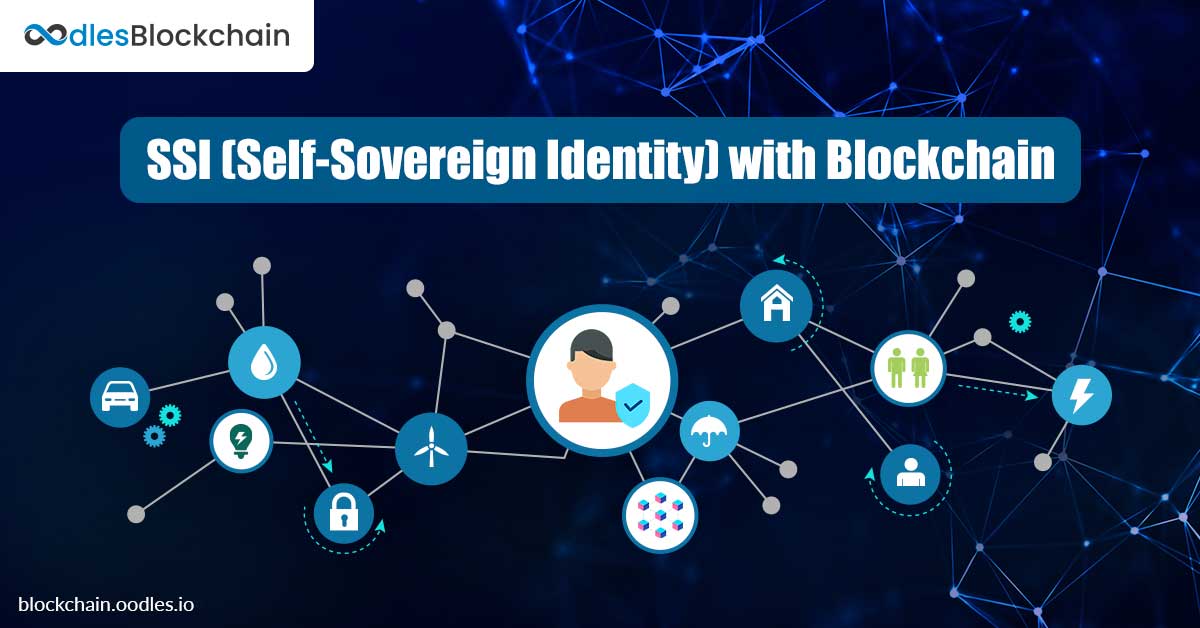-
Today's traditional identity systems are fragmented, insecure, and exclusive. With blockchain Identity solutions, we can enhance the digital identity management sector by enabling secure and efficient management of identities as well as their storage with a unified, interoperable, and tamper-proof infrastructure. Powered by blockchain-like Hyperledger Indy identity solutions can enable key benefits that can strengthen the digital identity management space for enterprises, users, and IoT management systems. But, first, let's understand the current realm of digital identity management and why we need blockchain to enhance it.
The Current Realm of Digital Identity Management
For Organizations
Private and public organizations frequently require to collect sensitive personal information of users. They store this sensitive information alongside less-sensitive routine business data. Consequently, it gives rise to new business risks with the expansion of user privacy-centric regulations like GDPR and industries focus shifting to corporate IT responsibility. When these datasets go to centralized data vaults, driving product improvements and attaining true customer understanding become obsolete. When organizations receive large fines or face the inevitable need to develop stronger IT capabilities, then only they pursue expensive projects to achieve the balance between data security and business requirements.
For Individuals
Identity is critical for smooth to a functioning society and economy. Having a proper way to identify ourselves and our possessions enable us to create thriving societies and global markets. At its most basic level, identity is a collection of claims about a person, place or thing. For people, this usually consists of first and last name, date of birth, nationality, and some form of a national identifier such as passport number, social security number (SSN), driving license, etc. These data points are issued by centralized entities (governments) and are stored in centralized databases (central government servers).
Physical forms of identification aren’t widely available to every human for various reasons. Approximately 1.1 billion people worldwide don’t have a way to claim ownership over their identity. This leaves one-seventh of the world’s population in a vulnerable state – unable to vote in elections, own property, open a bank account, or find employment. The inability to attain identification documentation jeopardizes a person’s access to the financial system and in turn, limits their freedom.
Addressing Digital Identity Management Challenges with Self-sovereignty
The self-sovereign identity model provides identity stakeholders (owners, verifiers, and issuers) control and access to their sensitive data. It enables these identity stakeholders to gain more power over their personal data management by facilitating them to manage and disclose selective PIIs individually in a peer-to-peer manner.
You Might Also Like: Solving the Issues of the Current Centralized System of KYC with Blockchain
Features of a Decentralized Digital Identity Management Solution
The essential features of decentralized, self-sovereign identity management
- Enabling users to control their digital identities
- The provision to share only required information for the specific requirements
- Reduces third party involvement with access to identifiable information only
- Prevent excessive linking of individual's data and information with other systems
- Produce digital identities for different conditions within one single holistic system
- Establishes a two-way trust mechanism, essentially provides system support for users as well for managing information of service providers
- Enable a consistent and enhanced user experience
Also Read: Self-Sovereign Digital Identity with Hyperledger Indy: Control Your Data
Hyperledger Indy-based Solution
Hyperledger Indy has tools and features to build permissioned, distributed solutions globally. It facilitates developers to develop an identity system that clusters analog IDs under one platform. It is similar to the real-world wallet concept. Hyperledger Fabric is suitable for programming identity solutions integrated with IoT devices and digital credentials that can authenticate themselves without requiring intermediaries.
Benefits of Hyperledger Indy
Self-sovereignty
Privacy
Verifiable claims
Development with Hyperledger Indy
Hyperledger Indy removes information silos and address database vulnerability. It provides
- Tools and libraries to create efficient decentralized identity platforms
- Identity management systems that are secure, scalable, and robust self-sovereign
- Provides interoperability across applications and administrative domains
We can achieve real-time reconciliation and authentication with a decentralized identity solution with Hyperledger Indy. Moreover, its comprehensive security features eliminate the need to use multiple usernames and passwords with encrypted digital identities.
As a result, it enables individual identity owners in a blockchain network to
- Access and use credentials when necessary
- Execute secure verification of self-sovereign identity
- Enable stakeholders to issue, control, manage, and privately sharing credentials with ZKP (Zero-Knowledge Proofs) security mechanisms.
Indy optimizes blockchain to use as a trusted database to facilitate secure identity and relationships. Also, it does not store any PII on the ledger.
Improving Digital Identity and Access Management with Oodles
Our Hyperledger Indy experts are skilled in building innovative enterprise solutions using blockchain technology. They have experience of working in various dimensions of blockchain application and Hyperledger Indy development. Explore our service offerings for Hyperledger Indy-based solutions. They meet the needs of a distributed, permissioned identity solution with point-to-point credentials exchanges.

Our Offices
INDIA
Emaar Digital Greens, Sector 61,
Gurugram, Haryana
122011.
Welldone Tech Park,
Sector 48, Sohna road,
Gurugram, Haryana
122018.













